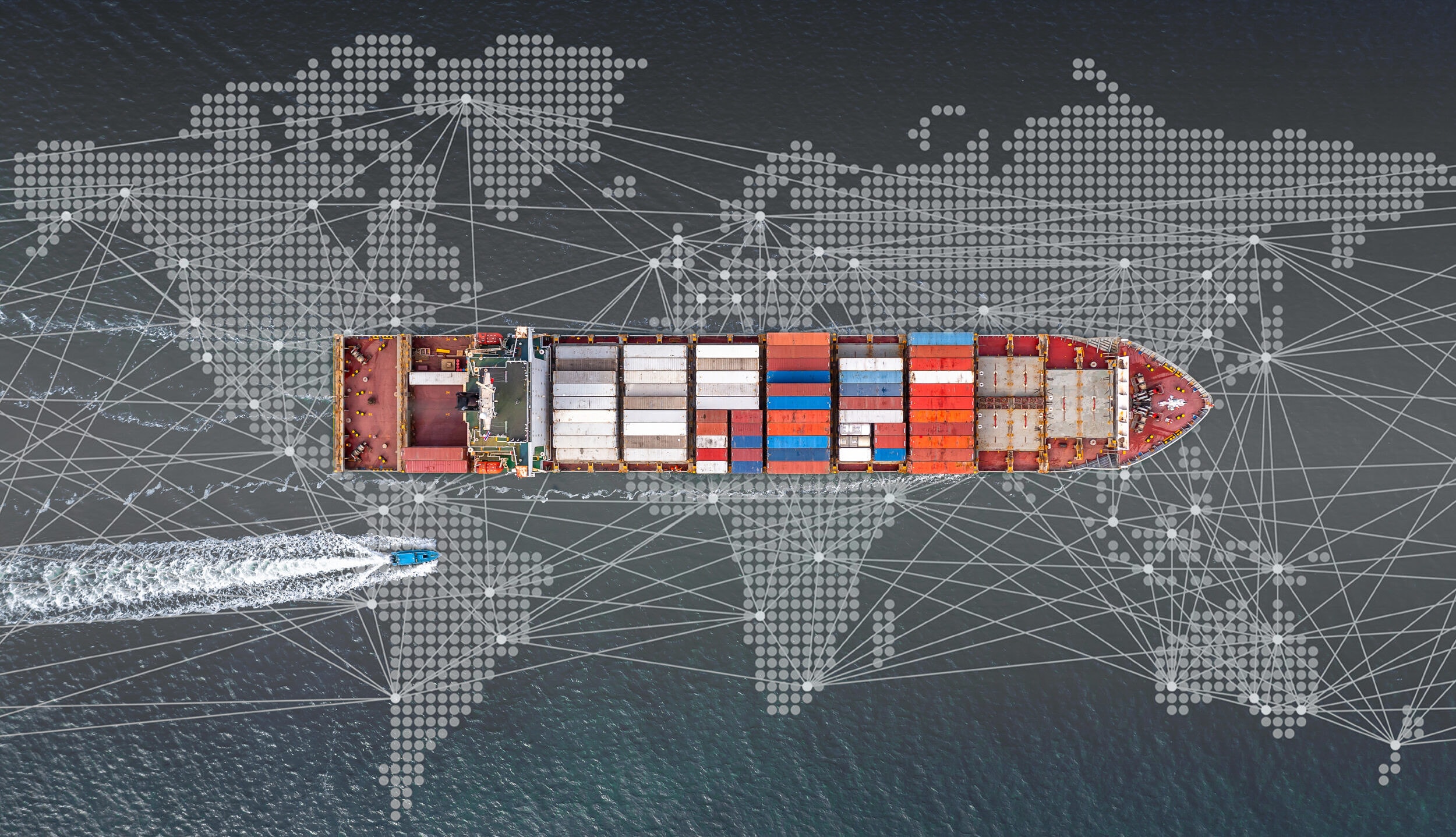If your organization is new to global trade, you likely have a lot on your to-do list. Before you start cutting deals, one fundamental legality to understand and implement is denied party screening.
At OCR Global Trade Management, we understand that it’s easy to get overwhelmed by the international webwork of laws and regulations. Thankfully, compliance is possible. All you need is clear information and the right tools to implement best practices.
That’s why we’re here to address frequently asked questions about denied party screening. Let’s dive in.
What does ‘denied party screening’ mean in global trade?
Denied party screening – also known as watchlist screening – determines if an individual, company, or entity is debarred from global trade or located in a country with sanctions or embargoes. It helps companies see whether a potential buyer, seller, end-user, or any party involved in your transaction is safe to engage in business with.
Watchlist screening is essential for ensuring legitimate global trade transactions and avoiding business with illegal parties.
What types of denied party lists are there?
Individuals, organizations, aircraft, vessels, and even entire countries may get on a denied party list by participating in various illegal activities such as terrorism, supporting terrorism, drug trafficking, money laundering, corruption, and other international offenses.
Denied party lists include screening against:
- Global trade embargoes and sanctions
- OFAC financial sanctions programs
- Anti-Money Laundering (AML) checklist
- Politically Exposed Parties (PEP)
- Medical and Pharmaceutical Exclusions
- Law Enforcement
- Denied Persons and Specially Designated Nationals (SDNs)
- And more!
Beyond that, there are several denied party lists issued by global agencies, such as the United Nations Security Council Consolidated List or the World Bank Listing of Ineligible Firms and Individuals.
Depending on the history and nature of the violation, such entities may be classified as a denied party, restricted party, debarred party, or blocked by the Office of Foreign Assets Control (OFAC). Each of the former classifications comes with its own restrictions and implications regarding the party’s freedom to engage in global trade.
Why is denied party screening important?
Conducting thorough denied party screening is crucial for any upstanding, globalized company to remain in business, legal, profitable, and with a good reputation.
By failing to conduct denied party screening, you risk:
- Your reputation – You risk tainting your organization’s reputation.
- Your finances – You risk paying thousands – even millions – of dollars in legal fees and fines.
- Your time – You risk spending precious time on arduous legal battles and imprisonment.
- Your welfare – You risk engaging in business with potentially dangerous and corrupt individuals and organizations.
- Your business – You risk losing your export privileges.
While it may seem like a time-consuming administrative formality, the risks involved with failing to complete denied party screening are too high to ignore.
Does the law require denied party screening?
Denied party screening is not strictly legally necessary. However, since making a transaction with a denied party is illegal, denied party screening is a critical first step before conducting business with any foreign party. Additionally, keeping detailed records of denied party screening adds a layer of legal protection and legitimacy to a transaction, demonstrating due diligence in complying with export regulations.
It’s important to remember that denied party screening laws and lists vary by country, so compliance hinges on understanding the applicable requirements and regulations in your given circumstance.
Who or what needs to be screened, and when should the screening happen?
The Bureau of Industry and Security recommends; “Check the parties to your transaction (including freight forwarders, intermediate consignees, and the ultimate consignee) against key U.S. Government Lists to Check to identify parties subject to denial orders or otherwise restricted or prohibited from engaging in U.S. export transactions.”
Essentially, organizations should screen all parties involved in a business deal. To conduct due diligence, companies engaged in international trade should use watchlist screening to zoom in on their global supply chain partners, buyers, associates, couriers, employees, etc.
Additionally, transactions should be screened since banks are required to block all transactions with money being sent to sanctioned parties.
Screening should begin from the first point of contact (i.e., when an email is received requesting information or a prospect is being added to the CRM database). Some transactions can take months to process before closing. In these cases, screening should happen regularly throughout different stages of the transaction.
What happens if you don’t do denied party screening? Are there legal penalties?
Yes. There are profound legal implications tied to denied party violations, and there are several domestic and international watchdogs that keep their eye out for violators.
“Violations of the Export Administration Regulations…may be subject to both criminal and administrative penalties. Under the Export Control Reform Act of 2018…criminal penalties can include up to 20 years of imprisonment and up to $1 million in fines per violation, or both. Administrative monetary penalties can reach up to $300,000 per violation or twice the value of the transaction, whichever is greater,” explains the Bureau of Industry and Security. “Violators may also be subject to the denial of their export privileges…Furthermore, it is unlawful for other businesses and individuals to participate in any way in an export transaction subject to the EAR with a denied person.”
Here are two examples of well-known global companies facing civil penalties from the Office of Foreign Assets Control for denied party violations in the past year:
- Airbnb – OFAC Settles with Airbnb Payments, Inc. for $91,172.29 Related to Apparent Violations of the Cuban Assets Control Regulations
- American Express – OFAC Settles with American Express National Bank for $430,500 Related to Apparent Violations of Foreign Narcotics Kingpin Sanctions Regulations
Indeed, violations can be a significant financial blow and even lead to imprisonment and revocation of export privileges.
Are you liable if you unknowingly conduct trade with a denied party?
Yes. You can still face legal repercussions for denied party violations, even if you unknowingly conducted business with a denied or restricted party. This is because those who engage in global trade are obligated to perform their due diligence with denied party screening and be able to furnish proof of doing so.
How do you start denied party screening?
To start, read the Bureau of Industry and Security’s guidance on how to avoid dealing with unauthorized parties. Then, familiarize yourself with red flags and learn what to do if you suspect an illegal transaction. Finally, stay up to date with the latest denied party lists.
What tools can help you comply with denied party screening laws?
Due to the complicated nature and risks involved in denied party screening, many global traders find it worth investing in global trade management tools. For example, you can find robust software solutions that simplify the denied party screening process.
What to look for in denied party screening tools:
- Daily updated watchlists.
- Transparent reporting for audits.
- Time-saving automation and integration options.
- Intuitive and easy-to-use platforms
Investing in global trade compliance tools can save you from non-compliance fines in the long run.
Enterprise-Level Denied Party Screening Software
Yes, whether you have a large corporation looking to expand globally or a small startup breaking into overseas markets, it’s in your best interests to avoid the heavy penalties associated with denied party violations.
To simplify the process, OCR Global Trade Management offers intuitive web-based denied party screening software. This powerful platform streamlines the denied party screening process without compromising on scrupulousness.
Our comprehensive global denied party and entity list from government and non-government sources is refreshed daily, ensuring you’ll act on the most updated information. Beyond that, our software curates a complete audit trail so you can demonstrate your due diligence if called into question.
Partner with OCR and conduct global trade with confidence! Get in touch with our sales team for more information.
Reference Links:
- https://home.treasury.gov/policy-issues/financial-sanctions/sanctions-programs-and-country-information
- https://www.justice.gov/criminal-fraud/foreign-corrupt-practices-act
- https://www.fatf-gafi.org/content/fatf-gafi/en/publications/Fatfrecommendations/Peps-r12-r22.html
- https://home.treasury.gov/policy-issues/financial-sanctions/specially-designated-nationals-and-blocked-persons-list-sdn-human-readable-lists
- https://www.un.org/securitycouncil/content/un-sc-consolidated-list
- https://www.worldbank.org/en/projects-operations/procurement/debarred-firms
- https://www.bis.doc.gov/index.php/all-articles/23-compliance-a-training/46-how-do-i-avoid-dealing-with-unauthorized-parties
- https://www.trade.gov/consolidated-screening-list
- https://ofac.treasury.gov/faqs/116
- https://www.bis.doc.gov/index.php/enforcement/oee/penalties
- https://home.treasury.gov/policy-issues/financial-sanctions/civil-penalties-and-enforcement-information
- https://ofac.treasury.gov/recent-actions/20220103
- https://ofac.treasury.gov/recent-actions/20220715#:~:text=Amex%20agreed%20to%20remit%20%24430%2C500,drug%20distribution%20and%20money%20laundering.
- https://www.ocr-inc.com/watch-list-screening/
- https://www.ocr-inc.com/contact-sales/



